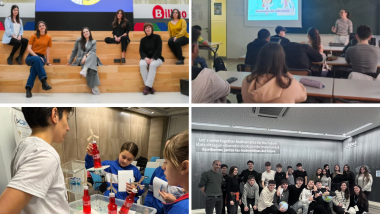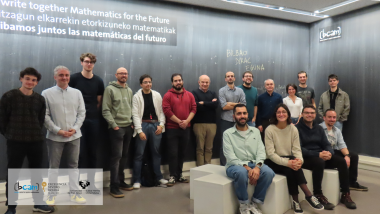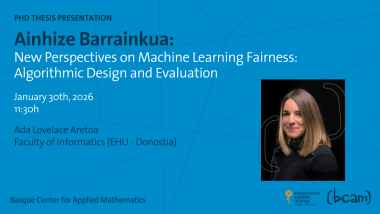BCAM researcher receives a "Research Consolidation 2022" project to promote his research
- Professor Santiago Mazuelas’ SLEDS project has been awarded one of the grants to encourage research consolidation by the State Research Agency
Santiago Mazuelas, Ramón y Cajal researcher in the Machine Learning group at the Basque Center for Applied Mathematics – BCAM, has been selected as a beneficiary of the Consolidation Research Grant 2022, awarded by the State Research Agency for his project “Supervised learning in environments affected by distribution shifts – SLEDS”.
The “Research Consolidation” grant is designed to consolidate the professional career of national and foreign researchers, so that they can develop their professional career within the Spanish Science, Technology and Innovation System and is financed by the European Union’s Resilience and Recovery Mechanism. In addition, it strengthens the implementation of a research project and research careers or research groups. In this case, it will fund the work of Professor Santiago Mazuelas’ team including junior researchers and PhD students.
The data used by machine learning techniques to be able to “learn”, usually have different characteristics to the cases where that learning is used. For example, the data used to predict a current situation may have been obtained years ago or correspond to different populations. This phenomenon is commonly known as distribution shift. The project at BCAM will develop effective learning techniques for environments affected by distribution shifts. Prof. Mazuelas and his team will use the methodological framework of minimax risk classifiers (MRCs), developed by the group in recent years. This approach allows adaptation to distribution shift situations in a more effective way than conventional methods.
The project, led by Prof. Santiago Mazuelas, aims to develop techniques that can be applied in a unified manner to different scenarios affected by distribution shift. Until now, existing methods have focused on addressing specific situations, which has limited their usefulness in more complex and diverse environments. The approach proposed by Prof. Mazuelas and his team at BCAM promises to overcome these limitations by providing a generalised solution.
One of the key advantages of the techniques developed by the SLEDS project is that they provide theoretical guarantees on the behaviour of the algorithms in practical situations. This means that the results obtained using these methods are reliable and predictable, which is essential in critical applications that require algorithms to behave in a reliable manner.
The potential impact of this project covers a wide range of real-world applications. For example, the techniques developed will allow Machine Learning algorithms to adapt to changing situations over time, such as energy consumption predictions where consumption patterns vary. They will also be useful in cases where the data correspond to different populations, such as predicting the severity of diseases in different groups of people.
“The development of reliable machine learning techniques is of vital importance in an increasingly data-driven world,” says the project leader at BCAM. “Our approach based on minimax risk classifiers offers a promising solution to overcome the challenges of distribution shift, allowing algorithms to adapt and remain accurate in various situations.”
With this research, BCAM reaffirms its commitment to advancing the cutting edge of machine learning and solving today’s most pressing challenges.
Related news
BCAM people




